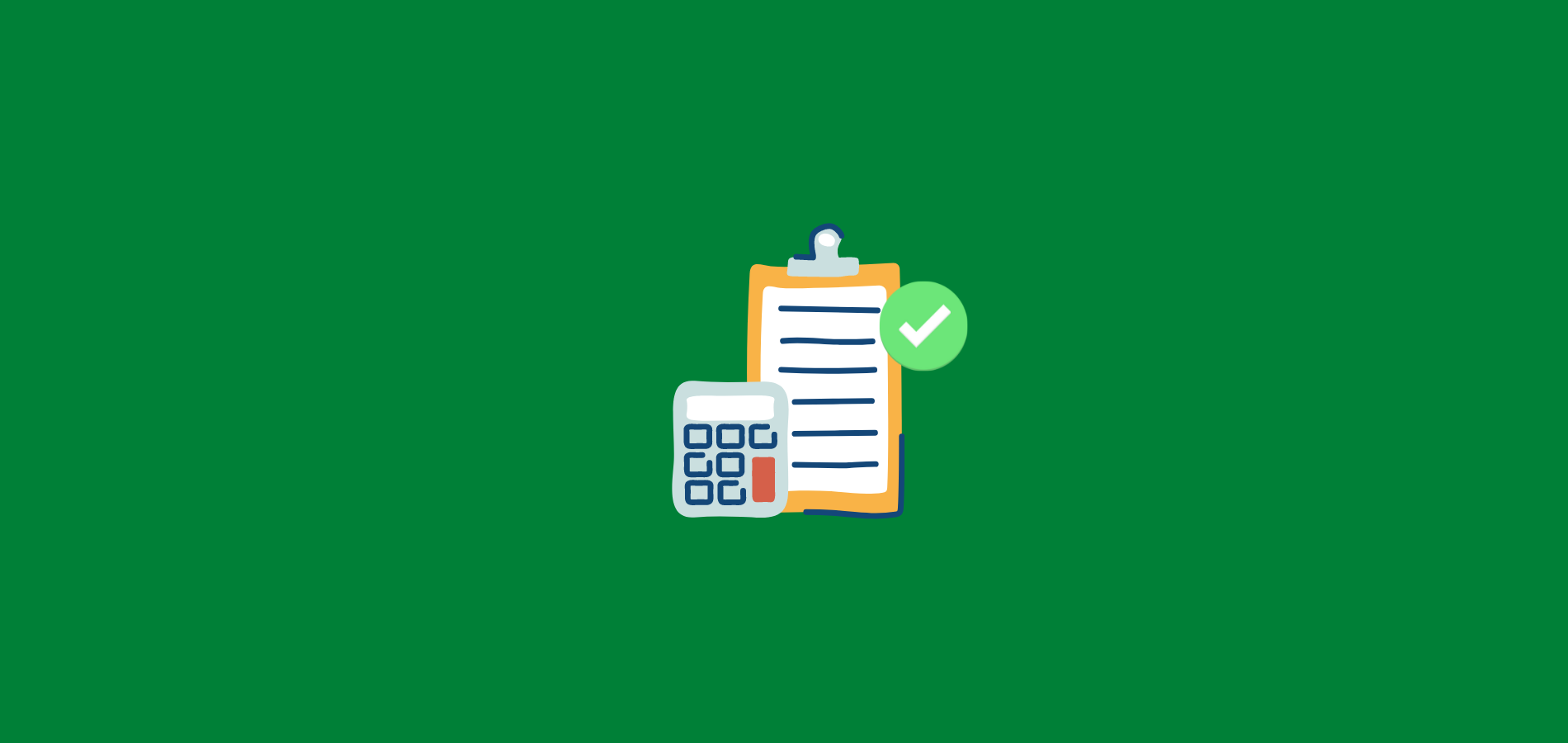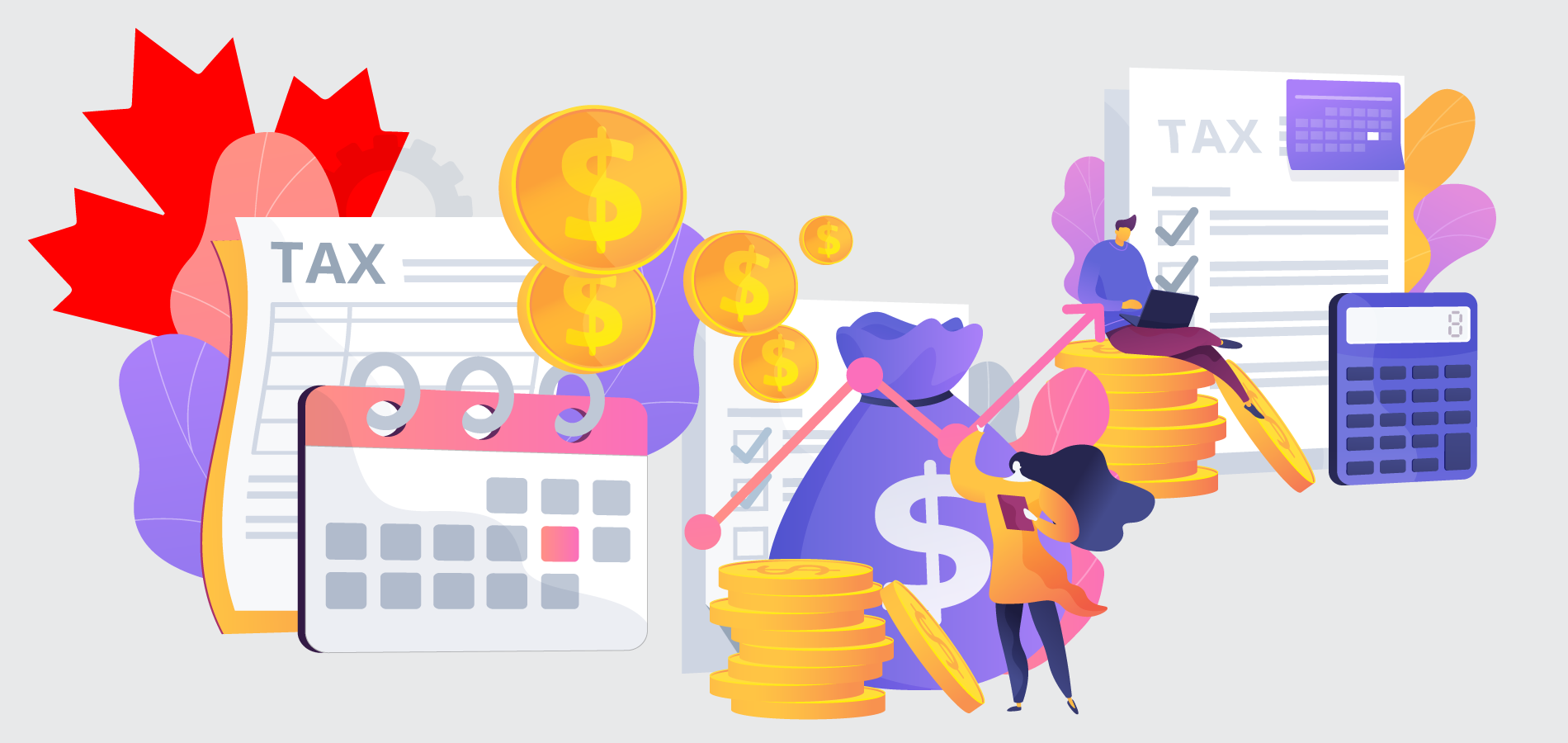It’s important to claim all possible tax exemptions. These serve to reduce your taxable income so that you pay as little corporate income tax as possible. In this article, we’ll provide a list to check the most common small business tax benefits. In addition, we will discuss three important deductions where you must be careful to stay within the Canada Revenue Agency rules: Home office expenses, motor vehicle costs and meals/entertainment.
What is a tax write off or tax deduction?
Tax write-offs, or allowable business deductions, are simply terms for business expenses that you can claim. Any expense that you incur to earn business can be included. These reduce your company’s profit and therefore your small business tax rate.
How do you qualify for a small business tax deduction?
Every business is allowed to claim expenses as a tax deduction.
However, it’s important to have established your business in the eyes of the CRA. If you are a start-up, incorporate the business at the outset so that you can begin claiming expenses. If you are planning to operate as a sole-proprietorship, rather than a corporation, you can request a business number from the CRA so that you demonstrate that the business exists.
Let’s look at an example of self-employed tax deductions. Olivia is planning to quit her job in a year and open a business to advise companies how to use social media in marketing. Even though the launch is 12 months away, she should register or incorporate her business now. This will allow her to claim expenses for a consultant to develop a business plan, a designer to create a website and home office costs.
What can small business claim as tax deductions?
- Marketing costs, such as a website and brochures. Advertising can be claimed, but there are limits on how much you can claim for ads in foreign countries.
- Business taxes, licenses and fees. Memberships in trade associations. (However, you can’t claim your gym or country club membership).
- Bad debts: If you invoice a customer and they don’t pay, you can claim this as a bad debt.
- Shipping, postage and freight expenses
- Business insurance
- Business use of a home office (with limitations)
- Business use of an automobile (with limitations)
- Interest and bank charges
- Legal, accounting and professional fees
- Office supplies
- Commercial rent
- Salaries, wages and benefits, including the employer’s share of CPP and EI
- Telephone, internet, utilities of your office
FAQ - Eligible Claims
Can I claim my personal vehicle as a business expense?
Yes, you can claim part of this cost – as long as you follow the CRA rules. You are allowed to claim the percentage of expenses related to the business, such as making sales calls or delivering finished products.
Here’s how the business use of the vehicle is calculated. Keep receipts for all of your transactions. Allowed expenses include fuel, maintenance, insurance, interest on a vehicle purchase loan and licensing. Add up these expenses. Then you need to track how many kilometres you drove for business or personal reasons. It’s important to keep a log of your business trips, including the date, purpose and number of kilometres traveled. You should have your receipts and travel log in the event that the CRA audits you.
Let’s look at an example. James runs a consulting business in southern Ontario, working mainly with auto parts manufacturers. He frequently travels to visit customers and to make sales calls. In the last year, he drove 20,000 kilometres – with half being for business. His total automobile expenses were $8,000. With half of his vehicle use being for business, he can claim $4,000 as his allowable business deduction for his vehicle.
Can I deduct my home business office expenses?
Yes, you can claim a certain share. Just like with vehicles, there are detailed CRA rules about this deduction.
First of all, what home business expenses can you claim? These include: heating, electricity, home insurance, property tax, mortgage interest and capital cost allowance.
How to calculate the business share of a home office: Measure the total size of your home and divide that by size of your office space.
If you use the room for both business and personal reasons, calculate the percentage of time used for work. For example, if you work in the space 8 hours a day you would divide that into 24 hours to get 33 percent business use.
You can claim the entire cost of home office supplies, such as paper, pens and printer ink.
Let’s look at an example. Jane is a public relations consultant and works from her home office. Her total house expenses are $10,000 per year. Her office, which she uses only for business purposes, is 20 percent of the total space of her home. She calculates 20 percent of $10,000. Therefore, she is allowed to claim $2,000 for her home office expenses.
Can I claim my lunch as a business expense?
There are restrictions on what you can claim for meals and entertainment.
First of all, to answer the question about your lunch: It depends. No, you can’t claim your lunch at your place of work or home office. However, you can claim part of the cost of taking a client or prospective client out to lunch as long as it is a business meeting.
The CRA rules allow you to deduct 50 percent of the cost of these meals and entertainment with clients. When you record the expense, be sure to make a note of which client was there and the purpose of the meeting.
You are allowed to claim 100 percent of the cost of an office party for your employees. There is a maximum of six per year.
Is a computer tax deductible for small business?
Yes. However, the amount you can claim depends on the situation.
You may have a home office and use your computer for both personal and work reasons. In this case, the CRA requires you to consider the percentage dedicated to work. The formula is based on 24 hours per day. If you work eight hours per day, you divide that into 24. The result is 33 percent. Therefore, you can expense one-third of the cost.
If your business has a commercial office, you can claim the entire computer since you are using it entirely for business reasons. With computers, you may need to treat it as a capital item and expense it over several years. Check with your accountant.
Is life insurance tax deductible?
Business owners cannot claim the cost of life insurance premiums for individual coverage. However, they may be able to deduct the premiums for group life insurance for their employees. Details are available here.
What travel expenses can I claim?
If you are traveling out of town to attend a conference or make sales calls, you can only claim 50 percent of the cost of meals. However, you can claim all of the costs for airfare, hotels and other expenses.
Commonly missed small business tax deduction
One of the most common missed opportunities for small business tax benefits are medical expenses. If you are the owner of a small business, you can claim these costs by opening a Health Spending Account. This covers health costs such as prescription drugs, vision and dental care. The company reimburses you for these costs and can then claim the cost as a business expense.





